Animals
-
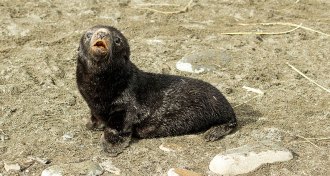 Animals
AnimalsPup kidnapping has a happy ending when a seal gets two moms
A female fur seal kidnapped another seal’s pup. But this turned out to be a positive the young seal, scientists found.
-
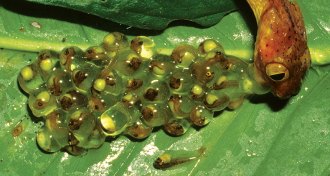 Animals
AnimalsHow Houdini tadpoles escape certain death
High-speed video of red-eyed tree frog embryos reveals the secrets to their getaway plans.
-
 Animals
AnimalsReaders ponder animal flight
Readers respond to the June 11, 2016, issue of Science News with questions on cormorants, butterflies, virus-sensing genes and more.
-
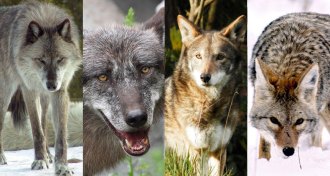 Life
LifeDistinctions blur between wolf species
Red and eastern wolves might be gray wolf/coyote blends instead of distinct species
-
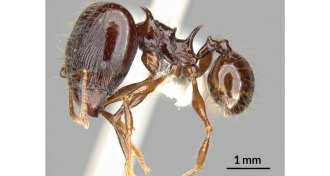 Animals
AnimalsNewly discovered big-headed ants use spines for support
Two newly discovered ant species provide new insights into spiny evolution.
-
 Animals
AnimalsNeonicotinoids are partial contraceptives for male honeybees
Male honeybees produce less living sperm if raised on pollen tainted with neonicotinoids, tests show.
By Susan Milius -
 Animals
AnimalsNeonicotinoids are partial contraceptives for male honeybees
Male honeybees produce less living sperm if raised on pollen tainted with neonicotinoids, tests show.
By Susan Milius -
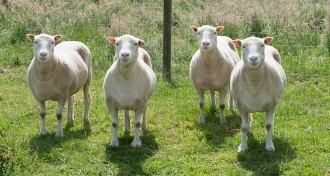 Genetics
GeneticsDolly the Sheep’s cloned sisters aging gracefully
Cloning doesn’t cause premature aging in sheep.
-
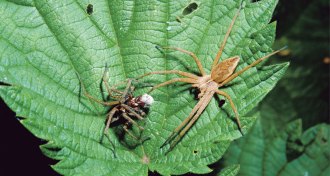 Animals
AnimalsTo prevent cannibalism, bring chocolate
If a date goes bad for a nursery web spider, a romantic gift can serve as a shield.
By Susan Milius -
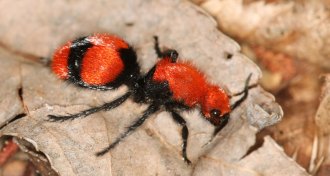 Animals
AnimalsNew books deliver double dose of venomous animal facts
In Venomous and The Sting of the Wild, researchers delve into the world of venomous creatures and the scientists who study them.
By Sid Perkins -
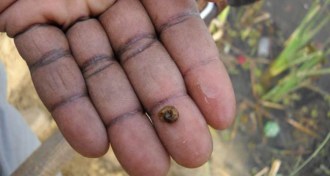 Animals
AnimalsGetting rid of snails is effective at stopping snail fever
For the tropical disease snail fever, managing host populations is more effective than drugs.
-
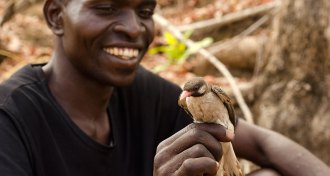 Anthropology
AnthropologyHumans, birds communicate to collaborate
Bird species takes hunter-gatherers to honeybees’ nests when called on.
By Bruce Bower